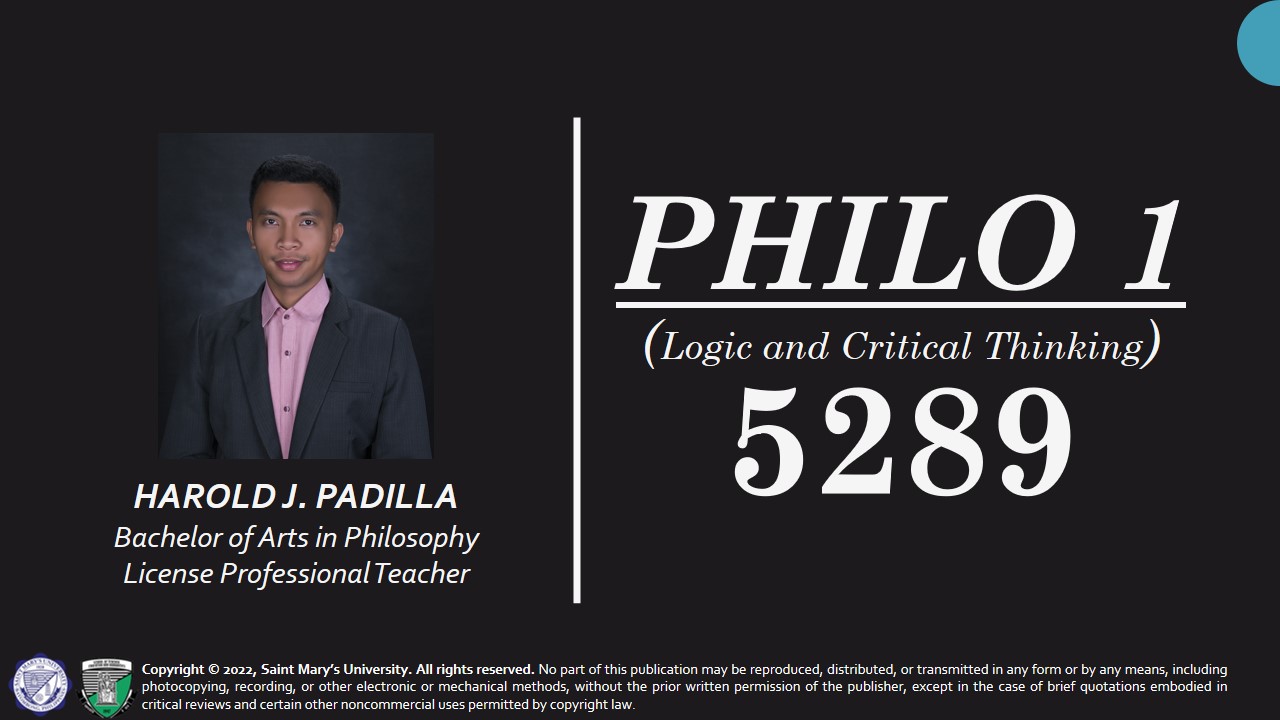Search results: 4
This course covers basic epidemiology principles, concepts, and procedures useful in the surveillance and investigation of health-related states or events.
It also examines common statistical methods used in biology. It allows the students to carry out basic mathematical and statistical computations and the use of appropriate technologies in the analysis of biological data.
- Teacher: MELANIE GURAT
- Enrolled students: 25
This course introduces the students to the study of formal Logic and Critical Thinking and to their significance to developing a critical attitude towards knowledge and reality and to making good judgments and wise choices and decisions. It presents the rules and principles concerning correct and valid reasoning established by Logic, which are necessary for critical thinking. It helps the students master the concepts and acquire the skills of evaluating arguments and of constructing sound arguments. It also shows the various applications of logical and critical thinking to ordinary language and in daily life. It also includes the study of material fallacies which is also very important to guide students in determining some errors in reasoning not covered by the formal rules. This course ultimately aims to sharpen the students’ critical thinking, analysis and reasoning powers.
- Teacher: Harold Padilla
- Enrolled students: 40
Management Information Systems (MIS) is a formal discipline within business education that bridges the gap between computer science and well-known business disciplines such as finance, marketing, and management.
- Teacher: ESSEL CAÑABERAL
- Enrolled students: 1
- Enrolled students: 1


